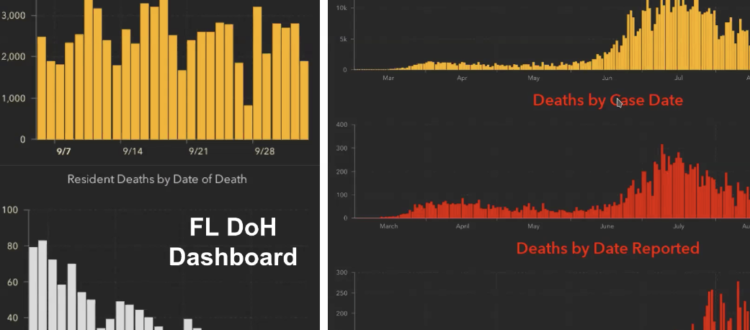A team of researchers at the University of Florida are using mathematical models to evaluate the impact of current and future COVID-19 interventions.
Thomas Hladish, an assistant research scientist at the Emerging Pathogens Institute and the Department of Biology, works with mathematical models to better understand infectious disease transmission. In a project funded by the Informatics Institute, Hladish and his team built a synthetic population for the state of Florida to simulate outcomes of COVID-19 transmission among residents and the resulting possibilities like vaccinations.
“In order to be able to test our ideas about all the complicated things that have happened with COVID-19, you need a pretty detailed model in order to understand and make sense of some of the things we have seen,” Hladish said. “The types of populations represented in the model are households, schools, long-term care facilities and hospitals.”
By organizing these populations along with certain traits (employment status, gender, age, underlying health conditions) for different groups of people, data can show vaccine scenarios and what could happen if they are implemented in different ways. Some factors could be the timing of stay-at-home orders or when public businesses reopened.
Hladish’s model represents data from Florida to understand possible outcomes of interventions, but variables can be added or removed to show a generic place. Hladish is currently working to boil down a dataset to evaluate predictions for a more specific population.
“Now what we’re doing is refining our understanding of how long-term care facilities are defined,” Hladish said, adding that the focus is necessary because there have been a disproportionate amount of deaths from COVID-19 in places like nursing homes.
Hladish shared preliminary results from his study Understanding COVID-19 dynamics and intervention impact in the state of Florida. Check out the full seminar here.
Check out Hladish’s work with the Florida Department of Health and COVID-19.
This story was originally posted on UF Informatics.
Check out more stories about UF research on COVID-19.

